- Home
- Chris Ryan
Killing for the Company Page 19
Killing for the Company Read online
Page 19
‘You’ll be firing 7.62 shorts. Hard-hitting rounds, thirty-round magazines. You get nine to ten bursts per magazine. Count them. When you pack your weapon, be sure you do it barrel downwards. You don’t want to be rummaging around when the time comes.’
They had nodded, but not said anything, as they followed the advice.
Once they were ready they had prayed together, beseeching Allah to look with favour on their enterprise, and asking Him to grant them entry to His kingdom when their earthly life was done.
Which would be in a couple of minutes’ time.
Hussam’s watch clicked to 17.17. The two men nodded and pulled their weapons from their rucksacks, just as the cubicle door opened and the pregnant woman appeared to the sound of the toilet’s violent flush.
She stopped, her face aghast, her eyes glued to the sight of the machinery in the men’s fists.
Hussam looked at her. He saw her swollen belly and remembered his own wife when she was in the same state. For a split second he wondered if he was doing the right thing. What would she say if she could see him here now?
But then he remembered her lifeless body, still and cold. And their baby, not much bigger than the palm of his hand. This woman in front of him, she had a ruddy glow about her. Her cheeks were full, not like the thin, gaunt features his wife had displayed during her pregnancy through lack of nutrition. This woman had never given the plight of the Palestinian people a second thought. Like everybody in the West, she had sat complacently by while their people suffered and their children died. Why should she be allowed to live a life of comfort and safety when his own family were no longer of this world?
He raised his 74 just as the woman opened her mouth to scream.
But no scream came.
It was a short burst, and the sound was almost entirely masked by the sudden and unexpected noise of a train passing in the other direction. The rounds entered the woman’s chest, flinging her back through the open door of the toilet as an explosion of blood spattered all around the cubicle. Hussam momentarily lost control of his weapon and the rounds flew up to her face, then back down to her swollen belly. For a split second he thought he saw a flash of the unborn child’s body, but perhaps that was just his imagination. He released his finger from the trigger, concerned that he had wasted too many rounds on one kill, then stepped towards the first carriage and made his way into it.
There was no turning back now. It had begun. The nervousness had left his body just as surely as the rounds had left the barrel of his weapon; they had been absorbed by his first kill and now he was ready to see this through to the end.
Hussam worked methodically, starting on his left with a man and a woman, both asleep, she resting her head on his shoulder. Two quick bursts and their sleep became permanent. A stray round shattered the window next to them and it was this, more than the sharp, mechanical sound of the 74, that alerted the passengers nearby to what was happening. A man in the seats to Hussam’s right had seen the couple being slaughtered, and was already half up on his feet by the time the Palestinian gunman had him in his sights. A single burst and he slumped back down in his seat, blood foaming from his mouth.
Hussam stepped forward down the aisle to the next set of seats. He could sense his companion was right behind him, ready to take over once Hussam’s rounds had expired. The roar from the shattered window was immense, and the wind ruffled Hussam’s loose clothing and his hair. He refused to be distracted by any of this, and the killing continued.
He had fired nine bursts and killed nine people by the time his 74 clicked empty. As soon as the magazine was spent, he turned sideways and let his companion take the lead. Hussam knew he might need a little encouragement to take out his first victim, so he urged him on with a reminder of what they were doing: ‘For our people!’ he shouted. ‘For Palestine!’ But his words were drowned out. So far the gunman had been too swift for anyone even to cry out. That had changed. People further up the carriage had realised what was happening. Strangely there was very little screaming, although some passengers were frantically ringing numbers on their mobile phones and shouting into them. ‘They’ve got guns! They’ve got guns!’
One man – tall and thickset – burst out into the aisle and started running towards them, grasping a black holdall in front of him to protect himself from the shots. ‘Get that man!’ Hussam yelled.
His companion’s arm shot up and to the right as he fired, ripping a seam across the charging man’s face with such ferocity that his features were instantly replaced with flashes of skull and blood. The man crumpled to the floor and the new gunman continued the methodical execution of the passengers. There was chaos in the carriage now – shouting and crying and confusion. Hussam ignored it all as he plunged his hand into his rucksack and pulled out a full magazine for his weapon. He removed the spent mag, dropped it on the floor and quickly replaced it, ready to take over from his companion once the second gunman’s rounds were spent.
And so they continued, staggering their slaughter like they were playing some horrific game of leapfrog. Panic ahead; total silence behind. Hussam didn’t look back at the scenes of indescribable carnage; his eyes did not linger on the bloodied corpses or the flesh and brain matter painted over the windows and walls. He kept his focus, his eyes straight ahead and his mind on the job. They had planned for this moment for a long time, and he wasn’t going to mess things up through a lack of concentration . . .
The shouts of panic reached a peak when they were halfway through the first carriage, then started to ebb away as fewer and fewer people remained to emit any kind of sound. Some passengers – braver than the others, or perhaps just more scared – made a run for it into the next carriage. But that was all right, because Hussam knew that his other two compatriots were already clearing the carriages from the opposite end. They would meet in the middle, sandwiching those who had fled and eliminating them in a final orgy of bloodshed. He stepped over the body of the would-be hero and felt his heel land on one of the man’s fingers. It crunched beneath him, making a sound like new snow.
When they reached the interconnecting area between the first two carriages, Hussam saw that one of the windows at the sides had been smashed with a heavy object. A chubby woman was holding her toddler – two or three years old, maybe, and it was difficult at a glance to tell if it was male or female – up to the opening. When she saw Hussam, she posted the child through the broken window and it was gone in an instant. The kid surely could not have survived that, Hussam thought to himself as he thumped a burst of rounds into the weeping mother’s back. He looked round and saw that the toilet was locked. He could just discern the sound of another woman inside, sobbing desperately. Hussam raised his gun and aimed directly at the door. The rounds made short work of the metal, ripping holes in it and immediately silencing the occupant.
The train sped on through the countryside. The first passenger they came across in the second carriage was the blind man. His guide dog – an old golden Labrador with a jowly face and slight lightening of the whiskers – was sitting anxiously by its owner’s feet. When it saw Hussam it started to growl; but Hussam’s weapon made mincemeat of the animal. The blind man cried out, as if he knew what he could not see; but any pain he felt at the demise of his guide dog was short-lived as Hussam delivered a burst of rounds to his head, before allowing his companion to leapfrog him once more so he could reload.
There was more blood than he had pictured in his mental rehearsals. More blood, and less screaming. And he was surprised at how quickly he became numb to the sight of death. It held no more horrors for him. No more mystery. When it was his turn once more, he started finishing off the remaining ten passengers in this second carriage with something approaching carelessness, spraying the rounds with less precision – though no less fatality – so that some thudded into the rough material of the seats, and another window shattered, bringing with it the roar of motion and a blast of wind.
They entered the middle carriage a
nd could just see the other two gunmen now. They continued their work, each pair mowing down the passengers as they edged towards the centre of the train. By the time there was ten metres between them, Hussam could see the others clearly. Their eyes were bright and their clothes and faces splashed with the blood of their victims. Hussam briefly wondered if he looked the same. He glanced down at himself and saw red streaks down his garments; with his free hand he touched his face, to find it was sticky. No matter. There were still four more passengers to deal with. They were standing in the aisle, having run here from one end of the train or another, and were now huddled together: two women, a man and a boy of about sixteen. They all looked like they wanted to scream but couldn’t.
They could weep, though. And they did.
Hussam didn’t shoot them from a distance because he didn’t want to risk hitting his accomplices who were on the other side of these final passengers. Instead he strode towards them until he was just a metre away. Their screams grew louder and merged with the sound of the wind rushing through the broken window. The air was thick with their terror.
Hussam downed them with a single burst. The screaming stopped as the rounds ripped into the meat of the passengers’ bodies, mashing the teenage boy’s face and bursting the jugular vein of one of the women. The group fell as a single unit, and their dead bodies propped each other up like martyrs at a stake.
Only now did Hussam look back. Only now did he pause to contemplate their handiwork: the blood and the gore and the gruesome look of absolute terror on the faces of those victims where the bullets had entered below the neck. It neither pleased him nor appalled him. It was what it was. It was what it had to be.
The four men faced each other, two on either side of the propped-up corpses. Hussam felt a trickle run down his forehead and over his thick, black eyebrows. He blinked hard as a mixture of sweat and blood stung his eyes. He nodded at the others, and they placed their 74s on the ground. Those weapons were finished with. It was time now for the Mother of Satan to do its work.
‘Allahu Akbar!’ He announced the Takbir in a loud voice so that it could be heard over the noise of the train and the wind from the broken window.
The others opened their mouths to return the incantation, but they were interrupted for a few seconds as another train hurtled past them in the opposite direction.
Hussam’s eyes glowed. ‘Allahu Akbar!’ he repeated, and this time his prayer was met with a response.
‘Allahu Akbar!’
The eyes of his compatriots were also burning, their bloodied bodies trembling. All four of them held their left hands aloft, ready to flick the switches that would transport them to paradise. Hussam closed his eyes. For a brief moment he saw his wife and child as they should be.
Smiling at him.
Waiting.
He opened them again, and nodded.
That nod was the sign. All four men flicked their switches, and detonated.
SIXTEEN
19.28 hrs.
It had taken two hours for the images to circle the earth.
The gnarled wreckage of the train, its two middle carriages blown skywards, the front and two rear carriages lying at an angle to the rails and crumpled into the sidings, lay still. Great floodlights had been erected in the field adjacent to the crash site, illuminating the scene of devastation as brightly as a night-time football match, and supplemented by the spots from two choppers circling overhead. There was a constant hum from aircraft and the electricity generators on the ground, and a flash of neon-blue emergency lights from vehicles approaching off-road. Three air ambulances were on standby. As the paramedics combed through the debris, it became increasingly clear that the ambulances would not be required to evacuate the casualties; they would be required to transport the dead.
Fifty metres from the blast site, a luminous-orange cordon had been erected, guarded by uniformed police officers to keep the small crowd of journalists at bay. They were a hard-bitten lot. Like the doctors and policemen, they were used to scenes of trauma. Such sights were their bread and butter, but even they, tonight, were sickened. They remembered 9/11 – some of them had been there – and the uneasy sensation everyone had that day that the world was about to change. They had that sensation again now, and these usually pushy professionals were restrained. Their cameras did not deviate from the crash site, where a plume of smoke still rose into the air, disturbed occasionally by a gust of wind but otherwise eerily straight.
One of these journalists was younger than the others. His name was Andy Carrington and he was just twenty-three. So far in his life he had seen three dead bodies. One was a tramp who’d died of exposure when Andy was on the night shift of his local paper back home in Norfolk. One was a car crash victim who’d been hit by a drunk-driver just after chucking-out time, and Andy had been surprised by how little blood there had been. The third had been his grandfather, lying on a bier in the funeral home, as cold as ice but immaculately presented, his skin shiny and his thin hair neatly combed.
None of these corpses had prepared him for the sight of the bodies being taken to the air ambulances that evening.
He’d run over to the point, about thirty metres from the throng of other journalists, where two policemen were holding up the cordon to allow a stretcher carried by two paramedics to pass. As he ran in that direction he was vaguely aware that none of his colleagues was doing the same. He put that down to his own hunger – his determination to show his mettle as a journalist. The previous night he’d been reporting on a film premiere from Leicester Square, and now he wanted to show his quality at reporting serious news rather than tittle-tattle about Angelina Jolie to be printed alongside a shiny picture of her, all lips and tits.
‘Stay away, son,’ one of the coppers called when they saw him approaching. It didn’t sound so much like an instruction as a piece of advice, and it was advice this young man was quick to ignore. The stretcher had passed the cordon now and the policemen had lowered it again.
‘Honest, mate, it’s not something you want to . . .’
Andy stopped.
He was about two metres from the stretcher when he saw the corpse in its entirety. It was a woman. He could tell that from the remnants of her clothes rather than her features, and this was because she no longer had any features. Her face was no longer a face. It was just a canvas of bloodied pap and shattered bone. There were two indentations where the eyes had once been, and a vague protrusion for the nose. Her left jawbone had been shattered and was now hanging from the right-hand side of her face, as though attached by the flimsiest of hinges. Her neck and chest were darkly stained, as if she had vomited blood.
But it was none of this that chilled Andy’s soul and made him want to retch. It was what he saw further down the woman’s body. She had obviously been pregnant. Her abdomen had spilled open and he could quite clearly see – bloodied and contorted but quite distinct – the figure of her unborn child.
It took a split second for Andy to take all this in. A split second to yank his gaze away as a terrible nausea suddenly overcame him, accompanied by a curious sense of shame, as though he had looked at something that should never be looked at. He realised why none of the older hands from the press corps had joined him.
‘If you’re going to chuck up,’ the same policeman who had warned him away from the stretcher called to him, ‘don’t do it near us, eh?’
Andy took a deep breath and tried to settle himself. ‘They, er . . . they found any survivors?’ he asked, more to keep his mind off the sickness than anything else.
The two policemen glanced at each other. ‘They’ll brief you when there’s anything to know,’ the copper replied, before looking back over the cordon. ‘You might want to move along now. There’s another stretcher coming.’
Andy looked over towards it. Two more paramedics, one more body. He could see its outline, but he couldn’t bear to look any closer. He nodded at the policemen and started staggering back towards the press pack. The image of
that woman and her unborn baby was burned into his mind. He knew it would haunt him for the rest of his life.
As he approached the others, his cameraman came running up to him. ‘TX in two, Andy. Jesus, mate . . . you all right?’
Andy didn’t answer. He had to get his head together. Formulate the words of his upcoming broadcast in his mind. Settle himself.
Easier said than done.
He was still pale and nauseous as he stood between the cameraman and the cordon, a radio mike clipped to his lapel. The words he had cobbled together tumbled from his wind-bitten lips.
‘At approximately twenty past five this afternoon, an explosion is thought to have taken place here on the Bristol to London line.’
The image of the baby flashed in front of his mind, and he stumbled. The cameraman made a rolling gesture with his right arm to encourage him to keep talking. Andy took a deep breath.
‘Although the authorities have yet to make a statement regarding the source of the explosion, there seems little doubt that it is linked to almost identical events that occurred at the same time on the outskirts of Washington DC, Paris and Delhi.’
He paused, so that live feeds showing scenes of similar devastation across the globe could be transmitted into the living rooms of the country: daytime in Washington, still night everywhere else, but chaos and calamity and weeping no matter what the hour. In Paris, the camera cut to the sight of a screaming young child being restrained by her tear-sodden mother, clearly howling for a loved one – perhaps her father – on the wrecked train. The journalist could only hear the sounds through his earpiece, and not see the images. He was thankful for that.

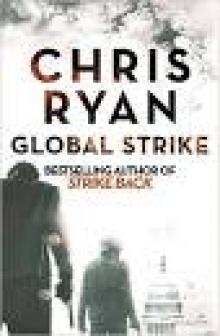 Global Strike
Global Strike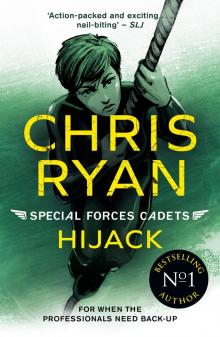 Hijack
Hijack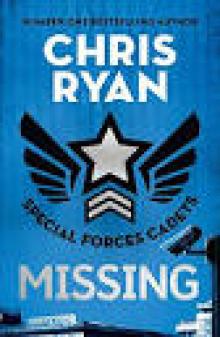 Special Forces Cadets 2
Special Forces Cadets 2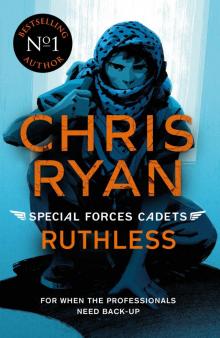 Ruthless
Ruthless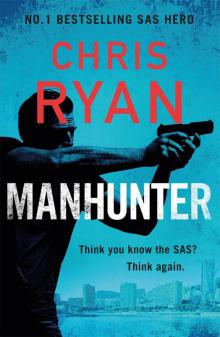 Manhunter
Manhunter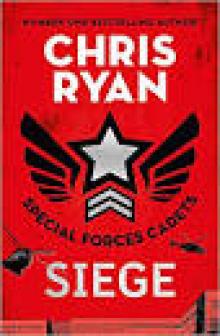 Special Forces Cadets 1
Special Forces Cadets 1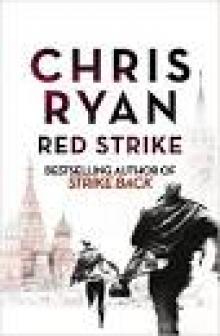 Red Strike
Red Strike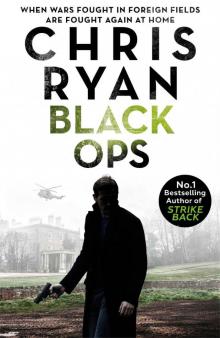 Black Ops
Black Ops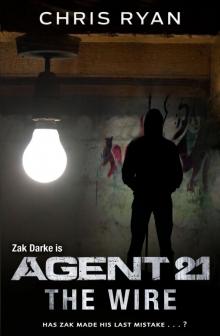 Agent 21: The Wire
Agent 21: The Wire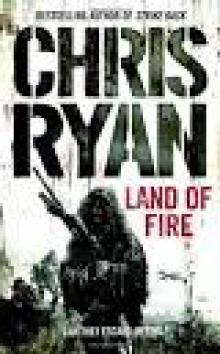 Land of Fire
Land of Fire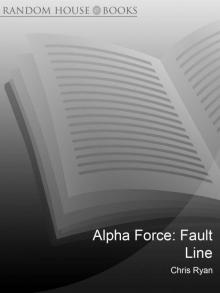 Alpha Force: Fault Line
Alpha Force: Fault Line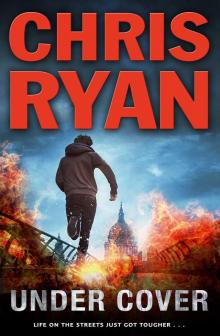 Under Cover (Agent 21)
Under Cover (Agent 21)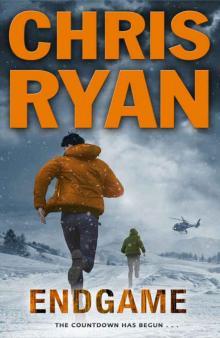 Endgame (Agent 21)
Endgame (Agent 21)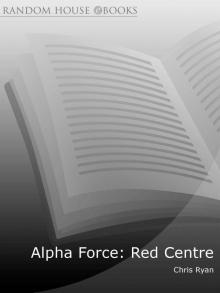 Red Centre
Red Centre Blackout
Blackout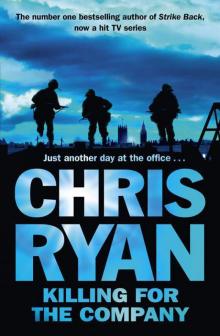 Killing for the Company
Killing for the Company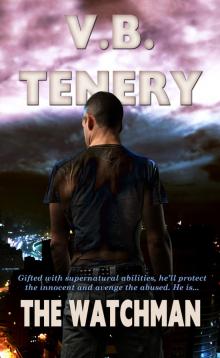 The Watchman
The Watchman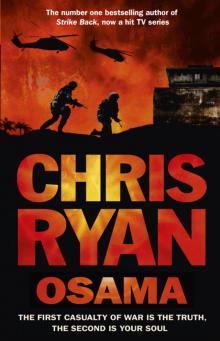 Osama
Osama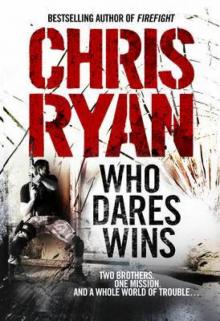 Who Dares Wins
Who Dares Wins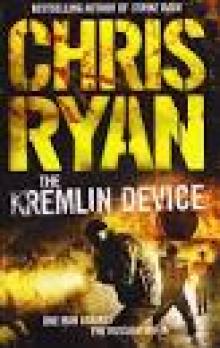 The Kremlin Device
The Kremlin Device Hunter Killer
Hunter Killer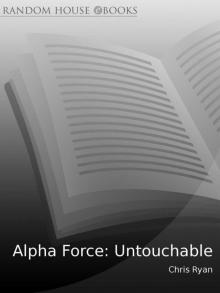 Alpha Force: Untouchable
Alpha Force: Untouchable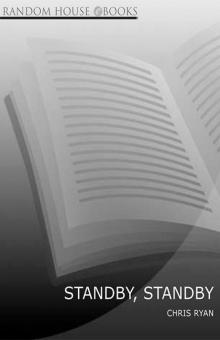 Stand By Stand By
Stand By Stand By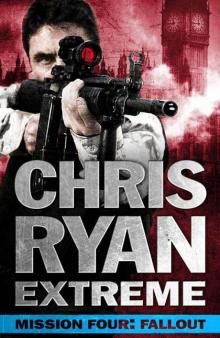 Chris Ryan Extreme: Hard Target: Mission Four: Fallout
Chris Ryan Extreme: Hard Target: Mission Four: Fallout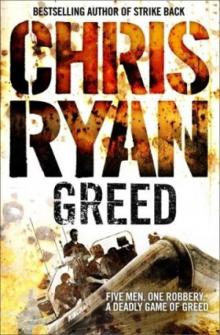 Greed mb-1
Greed mb-1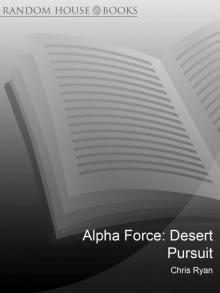 Alpha Force: Desert Pursuit
Alpha Force: Desert Pursuit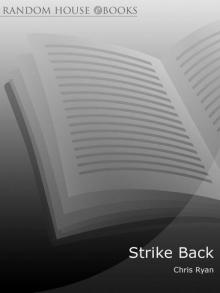 Strike Back
Strike Back Greed
Greed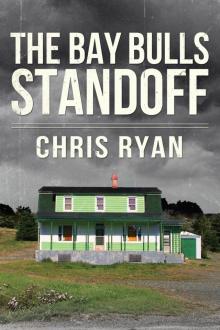 The Bay Bulls Standoff
The Bay Bulls Standoff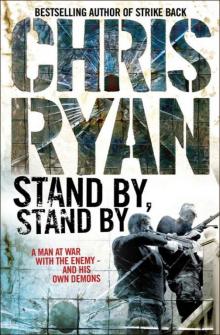 Stand By, Stand By gs-1
Stand By, Stand By gs-1 Outbreak
Outbreak Hunted
Hunted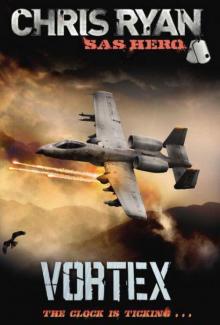 Vortex cr-4
Vortex cr-4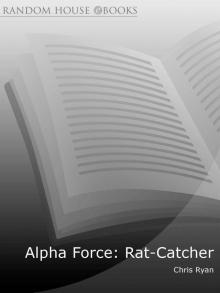 Rat-Catcher
Rat-Catcher Vortex
Vortex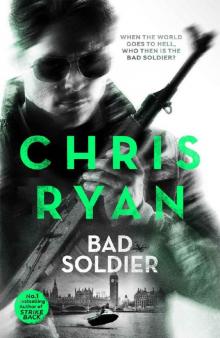 Bad Soldier
Bad Soldier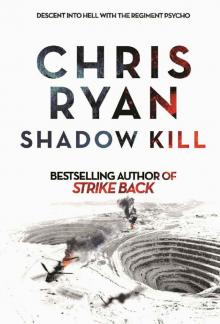 Shadow Kill: A Strikeback Novel
Shadow Kill: A Strikeback Novel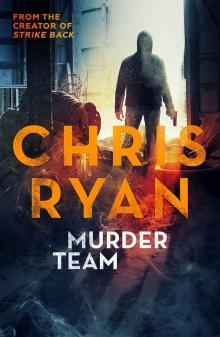 Murder Team (Kindle Single)
Murder Team (Kindle Single) One Good Turn
One Good Turn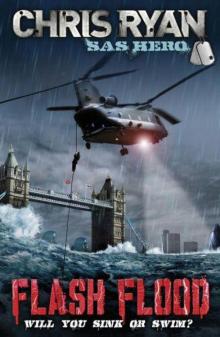 Flash Flood cr-1
Flash Flood cr-1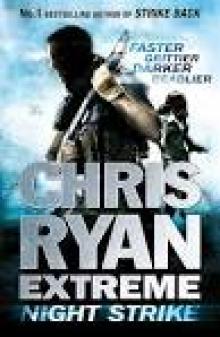 Night Strike
Night Strike Wildfire
Wildfire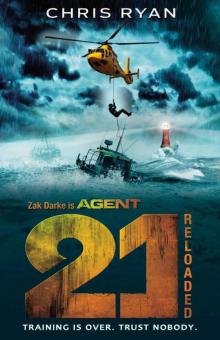 Agent 21: Reloaded: Book 2
Agent 21: Reloaded: Book 2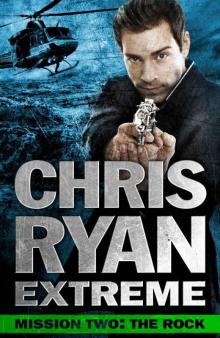 Chris Ryan Extreme: Hard Target: Mission Two: The Rock
Chris Ryan Extreme: Hard Target: Mission Two: The Rock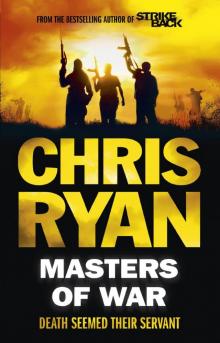 Masters of War
Masters of War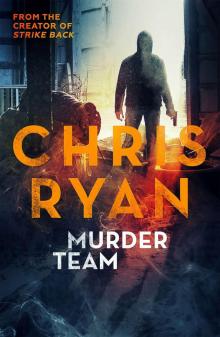 Murder Team
Murder Team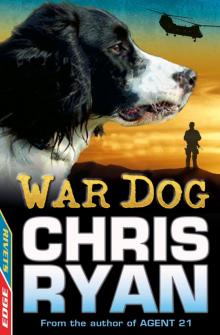 War Dog
War Dog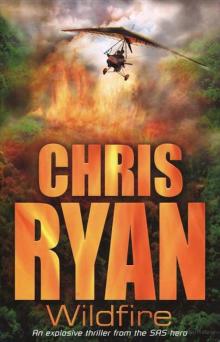 Wildfire cr-2
Wildfire cr-2 Survival
Survival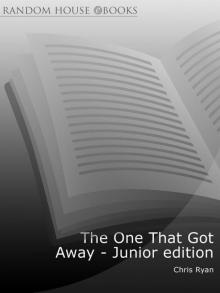 The One That Got Away - Junior edition
The One That Got Away - Junior edition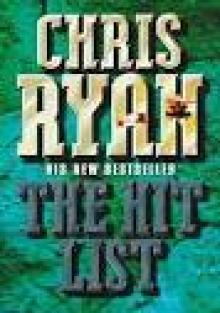 The Hit List
The Hit List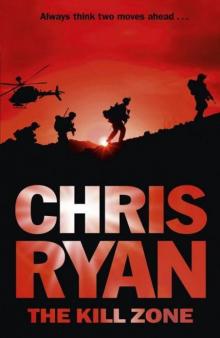 The Kill Zone
The Kill Zone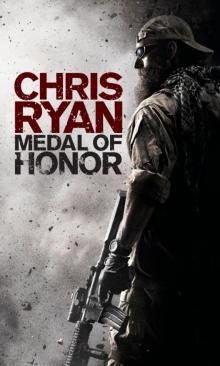 Medal of Honor
Medal of Honor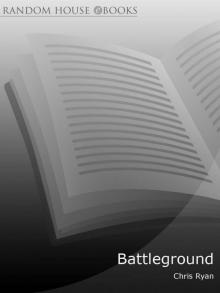 Battleground
Battleground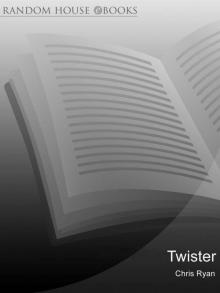 Twister
Twister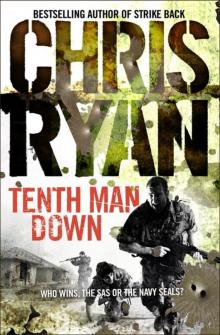 Tenth Man Down gs-4
Tenth Man Down gs-4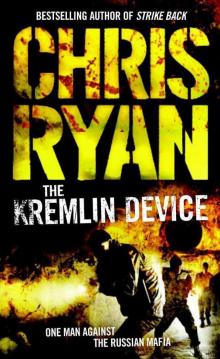 The Kremlin Device gs-3
The Kremlin Device gs-3 Hostage
Hostage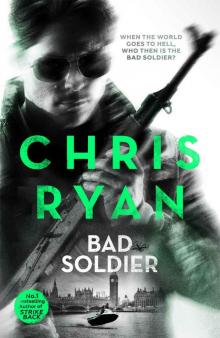 Bad Soldier: Danny Black Thriller 4
Bad Soldier: Danny Black Thriller 4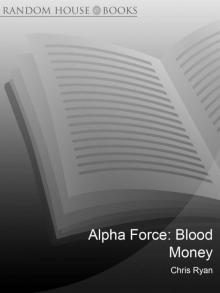 Alpha Force: Blood Money
Alpha Force: Blood Money Firefight
Firefight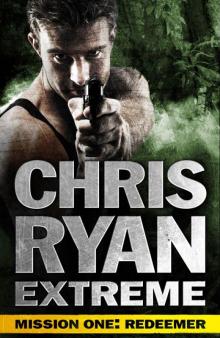 Chris Ryan Extreme: Hard Target: Mission One: Redeemer
Chris Ryan Extreme: Hard Target: Mission One: Redeemer Hit List
Hit List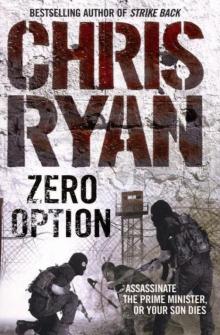 Zero Option gs-2
Zero Option gs-2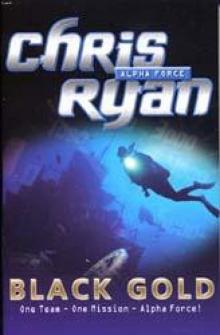 Black Gold
Black Gold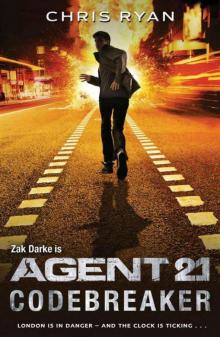 Agent 21: Codebreaker: Book 3
Agent 21: Codebreaker: Book 3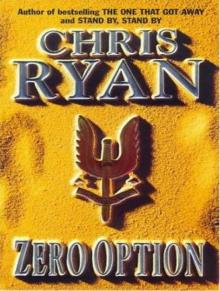 Zero Option
Zero Option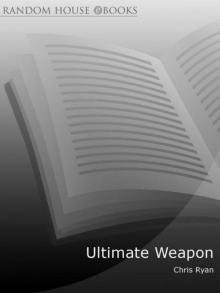 Ultimate Weapon
Ultimate Weapon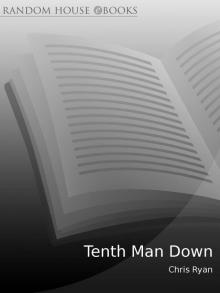 Tenth Man Down
Tenth Man Down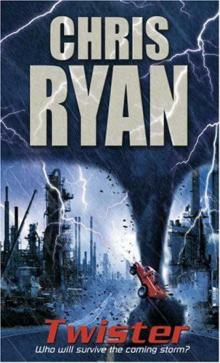 Twister cr-5
Twister cr-5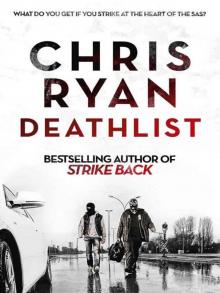 Deathlist
Deathlist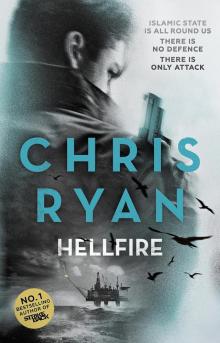 Hellfire
Hellfire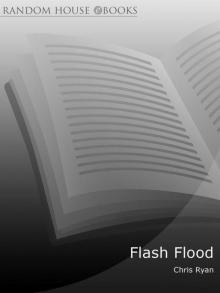 Flash Flood
Flash Flood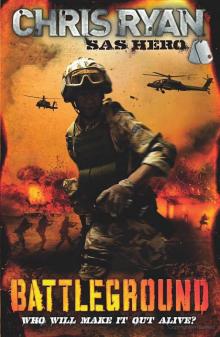 Battleground cr-6
Battleground cr-6 The Increment
The Increment